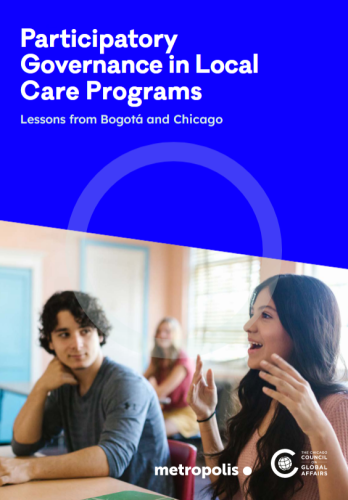Participatory Governance in Local Care Programs
Among the many urban crises precipitated by COVID-19, the pandemic was foremost a crisis of care. Urban dwellers faced lockdowns, isolation, illness, changes in employment and schooling, and a significant increase in demand for care and unpaid care work among many other challenges. As the pandemic unfolded, cities were thrust to the forefront of emergency response programs. At a time when governments enacted curfews, travel restrictions, and lockdowns to check viral transmission and ensure people’s safety, they also placed new burdens of care on historically marginalized communities.
Against this background of increased uncertainty, many cities embraced participatory governance — that is, community involvement in decision-making, from public policy development to service planning and delivery — to respond to the challenges posed by the pandemic. These programs varied greatly in scale, operations, goals, and outcomes.
This report examines two case studies — the Care System in Bogotá, Colombia, and the Rogers Park Community Response Team in Chicago, USA (RPCRT) — to demonstrate how global cities at the metropolitan and neighborhood scale embraced participatory governance frameworks when responding to COVID-19 and its unforeseen consequences. These case studies are based on interviews with city representatives, volunteers, and activists in both cities.



